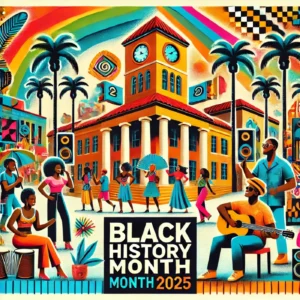Few people realize it, but Black history is steeped in health and wellness discoveries. Not just discoveries, but also negative events that have affected the course of Black health history.
From dangerous experiments on Black men to the founding of important medical associations and screening procedures, the milestones are everywhere.
Let’s cover five milestones in Black health history, from the good and great to the bad and biased…
1. The Tuskegee Syphilis Study
When people think of the Tuskegee Syphilis Study, they think of one of the worst violations in the history of medical ethics. Lasting 40 years from 1932 to 1972, this ‘study’ actually withheld treatment from Alabaman Black men on purpose.
The aims of the study, conducted by the U.S. Public Health Service, were clear from the beginning: to observe the progression of syphilis without any medical intervention. Not only were participants not informed about their conditions, but they were also never offered penicillin, which became huge in the 1940s.
Scholars and scientists look back on the Tuskegee Study to this day. Fortunately, its discriminatory and racist practices have helped shape studies everywhere, bringing much-needed attention to medical ethics, especially informed consent.
Thanks to studies like the Tuskegee study, we now have significant ethical frameworks, such as the Institutional Review Boards (IRBs) to protect participant rights.
2. The Legacy of Henrietta Lacks
If you haven’t heard of Henrietta Lacks, it’s quite a remarkable story. A Black woman with highly unique cancer cells, Henrietta had those very cells extracted in 1951.
Only one problem: she never gave consent.
But here’s the good news. Her ‘HeLa’ cells have become a fundamental part of medical breakthroughs all across modern medicine. They have greatly deepened our understanding of cancer research, vaccine development, and cell biology.
Of course, her family was surprised to hear this. After all, they didn’t learn about the use of ‘HeLa’ cells till decades after they became important.
So while the legacy of Henrietta Lacks has been a vital one for medicine, it’s also raised important questions about medical ethics and racial biases.
3. The National Medical Association
For the longest time, Black physicians were excluded from critical medical associations, such as the American Medical Association (AMA). But in 1895, things changed. With the founding of the National Medical Association (NMA), Black doctors’ rights were finally getting the attention they deserved.
Due to its deep roots in Black medical education, advocacy, and research, the NMA is still to this day a major player like never before. Without its establishment, there’s no telling how far left behind Black patients and practitioners would be to this day!
4. Sickle Cell Disease Research and Screening
A genetic blood disorder, sickle cell disease (SCD) is more pronounced in Black populations than any others. Fortunately, the 1970s saw a massive explosion in awareness and research. In 1972, the National Sickle Cell Disease Program signified a significant milestone in public health. This led to the creation of comprehensive screening procedures, making detecting and treating the disease far easier.
Thanks to the program’s important initiatives, we now have increased awareness, patient outcomes, and research grants like never before.
5. Impact of COVID-19
The COVID-19 pandemic hit many of us hard, leading to illness, death, and fundamental changes in the way we live. Fortunately, there is a silver lining in all this. The pandemic also helped expose a lot of the biases and structural disparities in health bodies.
In fact, health awareness and education in Black communities have probably never been higher. People are taking ownership of their health, they’re asking questions, and being concerned citizens like never before.
Given how health disparities and socioeconomic challenges led to worse COVID outcomes among Black populations, none of this should be surprising.
And while it’s tough to face how COVID disproportionately affected minorities, at the very least, things are changing. As we move forward, continued pressure for health transparency and accountability can help people get the care they need.
Which is what this is all about.
While not all milestones in Black health history were positive at the time, the changes they’ve spurred have been. It’s only through acknowledging these struggles, biases, and healthcare disparities, that we can really make the change we need.
From the lessons of the Tuskegee Syphilis Study to the development of the NMA, the road to a healthier future is being paved, day by day, every single day…
by Evan Bollinger





















